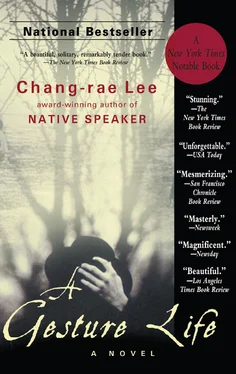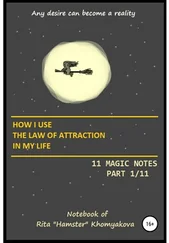Sunny says, “You’re not someone I ever think has had too little fortune in his life.”
I don’t answer, though I glance at her somberly, to try to tell her somehow that she’s both absolutely wrong, and right.
“I think that’s why Renny likes you so much,” she speaks up. “You’re a charm to him. He looks up to you. He’s obviously a nice man, too, and I could never tell him anything bad about you.”
“But you very well could.”
“I could,” she tells me straight, but without any malice in her eyes. “I could. I guess I could have told him a thousand things about you and about me, none of them alone so terrible and damning but taken altogether.”
“But there is that one thing….”
She lowers her eyes.
“I’ve been wishing it never happened.”
“Yes,” she very firmly and quietly says. “But we’ve talked about that already, haven’t we? I don’t want to bring it up again. Please.”
“Okay,” I say to her, though somehow I feel an impulse to lead us to some brink. So I say, “But in fact everything with Dr. Anastasia was all my fault. It was.”
Sunny doesn’t answer. There’s a cross wrinkle in her brow, but she somehow sloughs off my likely ruinous charge and asks instead if the turkey sandwich is all right for me. I can only answer that it is. Before I know it we’re on to something else entirely, namely, her round of interviews in Connecticut, and while she’s telling me how it doesn’t look promising that she’ll get the job or really want it if she does (the store being somewhere in northern Arizona), I see how far past those events and times my daughter is, how (whether psychologically healthful or not) she’s for the present moment put it well away, just a box in a trunk in an upstairs garret closet, this for her sake and Thomas’s and maybe even for mine.
We finish up with lunch and drink our tepid tea. We don’t say much of anything more, except to laugh about Thomas a little bit, as she tells me of his renewed love for all things on dry land. When she leaves I decide to go out of the hospital with her and escort her to her car, which she lets me do without a word. And I think a simple thought, that we can walk like this across wide parking lots, we can have a lunch together in a tiny basement room, and leave off mostly decent and all right.
I’m heartened on my own drive home, and yet I can’t seem to shake what I thought I had put well past me. For it was not in the hospital but in an affiliated clinic that I had arranged for Sunny to take care of her difficulty. She had returned once more to the house, after having been away for nearly a year. She was barely eighteen years old. She had been living with her friend Lincoln in a tenement apartment somewhere in Upper Manhattan. One evening as I was reading in bed the telephone rang and it was Sunny on the line. Her voice was very quiet and shallow, and for a few seconds I thought it was someone else, a prank caller of some kind. But then it was unmistakably Sunny, the reserve of her coming through even the anxiousness in her voice. Of course she would not say a word of how scared she was. But I listened and did not try to interrupt, and by the end of the conversation I told her I was glad that she decided not to go to one of the crowded, dirty clinics where she was living, and that she had nothing to be concerned with anymore. When I awoke I made several discreet contacts and by the afternoon the procedure was arranged and scheduled for the following Monday. Sunny would take the train up to Bedley Run on Sunday and I would meet her at the station and take us to the private clinic for an examination, which the doctor insisted upon before any procedure the next morning.
When I saw her step out onto the platform I was taken aback by the broad, curving shape of her. Her face was full. She hadn’t said how far the pregnancy had gone, and I had assumed it was but a few weeks past her date, perhaps a month or two, no more. Anyone else would have thought that she was too long with the child, that it was much too late, that there was nothing left to do. She was indeed quite near full-term. But when she came out of the train the first thought that came to me was that it was a Sunday and quiet, when there was hardly anyone about, and that I ought to spirit her to the private clinic and to Dr. Anastasia as quickly as possible.
In the car I didn’t speak. What was there to say? If anything, I had only criticisms, and though I chose not to air them I was feeling edgy all the same, driving brusquely, speeding and changing lanes without signaling. Sunny didn’t seem to notice, swaying on each turn, unseatbelted as always, and suddenly I was furious with her. How could she get herself into such a predicament? How long did she believe she could delay? Where now was her “lover,” whom she always talked of being so genuine and serious and gentle? Perhaps he had made a few recordings some time ago, but did he even own his trumpet anymore, or was it pawned for a few weeks’ phantom pleasure and delirium? And glancing over at her I felt my fury redouble, seeing that she had little need to apologize or excuse or otherwise explain, and I thought — darkly, for a bare millisecond — that I could unbuckle myself now, too, and let the car’s momentum carry us straight through the approaching sharp turn, into the stone farmer’s wall that bounded the old suburban roadway. I wanted an end to us, inglorious and swift, just another unfortunate accident on Route 9, to leave a few lines hardly noticed in the local paper concerning a longtime Bedley Run resident and his daughter, with no survivors.
And yet what did I do but nothing unusual, save elicit a sighing murmur from the tires as I wheeled us wickedly around that bend, the same one that I would grimly consider on countless future occasions, and that one rainy night years later my friend Anne Hickey would not survive. If only once I could cease imagining the various motions, and instead of conjurings and dummy musings that leave one subtly affected, take hold of some moment and fully acquit myself to it, whether decently or ignobly. This is not to say I wish I had smashed us into the wall, but that I might have at least stopped the car along the road and turned squarely and given her every last angry bit and piece of my mind. But what happened of course was that I drove home and let her inside the house where we separated until the appointed exam, Sunny upstairs in her old room stripped of everything but the bed, and I down in the family room, listening to the records of Chopin and Mozart I had bought for her to use as models and inspiration. And while I listened to those stirring, ambling notes I might have realized how frightening all this was to her, how overwhelming and awful, but I sensed instead only the imminent disgrace and embarrassment that would hang about the house like banners of our mutual failure.
At six o’clock I went up and had to rouse her. Her eyes were puffed and red; perhaps she had fallen asleep crying. I told her to come down to the car, and she said weakly she didn’t want to go to the doctor that night, asking if I could take her the next day. I reminded her that it was the waiting that had placed her in such trouble, that it was only an examination and she could talk to Dr. Anastasia about whatever she wished. Then she said she wasn’t sure anymore about going ahead. I didn’t protest; I only repeated that it was an examination and that nothing was yet determined. She finally nodded, still groggy, and excused herself to go to the bathroom. I fully noticed then the change in her as she walked down the upstairs hall, the outwardness of her feet, the slightest waddle to her gait. To remember that now makes me feel the way I should have felt, to brim at such a sight with sober pride and happiness, a grandparental glow, though then it was, I must recall, a most sickening vision to me, being the clearest picture of my defeats, familial and otherwise.
Читать дальше











![William Frith - John Leech, His Life and Work. Vol. 1 [of 2]](/books/747171/william-frith-john-leech-his-life-and-work-vol-thumb.webp)
![William Frith - John Leech, His Life and Work, Vol. 2 [of 2]](/books/748201/william-frith-john-leech-his-life-and-work-vol-thumb.webp)